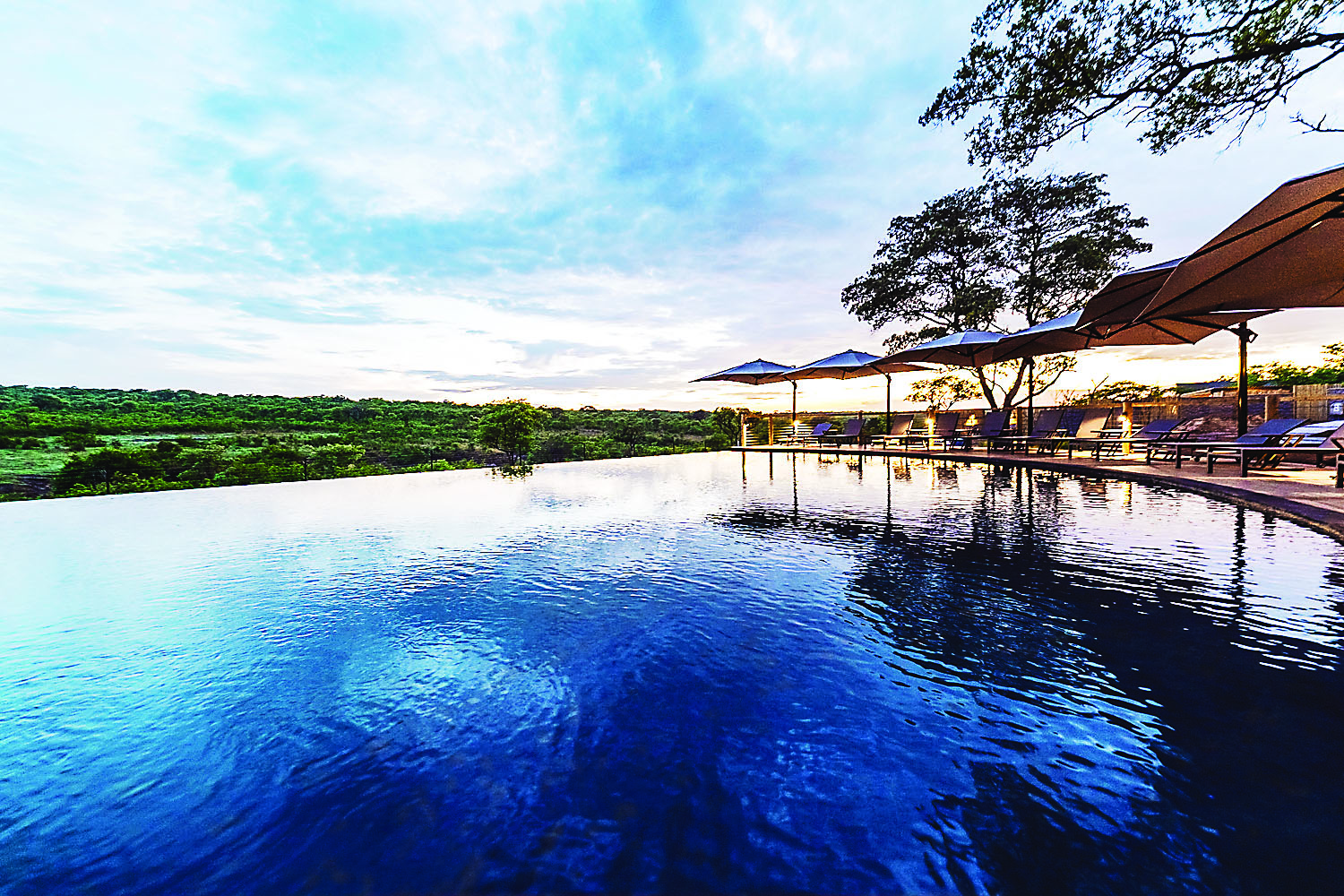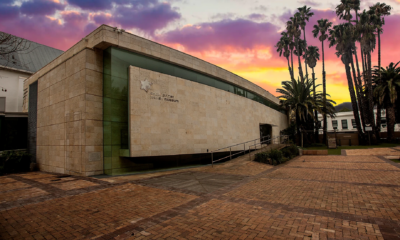
Lifestyle

Tourism holds on for dear life
Members of the tourism and hospitality industries protesting harsh lockdown measures were dispersed with water cannons and stun grenades by police in Cape Town on 24 July.
This moment symbolised the battle by these industries for survival in the storm of COVID-19, and the fighting spirit of many individuals who believe that tourism in South Africa will survive and thrive in future.
Before the coronavirus crisis, “the overall South African tourism landscape was on a positive trajectory, and Cape Town was on track to have record international arrivals,” says Searl Derman, the owner of Aquila Private Game Reserve. “The first real impact of the global crisis was felt here the moment the president addressed the nation and announced a state of disaster. Demand was literally wiped out overnight.”
Derman’s company had to wind down its operation and cut overheads and expenses to the bone, and his staff has borne the brunt. “Although government announced massive stimulus packages, these weren’t applicable to the many tourism owner-run businesses. More than 500 loyal staff have been put onto UIF (unemployment insurance fund) programmes due to temporary business closure, and many of them are still awaiting the TERS (temporary employer/employee relief scheme) benefits for May and June.
“The tourism industry is on its knees, and the sector is dragged about even further by ongoing litigation and legal battles with insurance companies,” he says. “The net result is that many businesses will close.
“Many articles and industry leaders have said that South Africa might be set for a strong recovery with its outdoor activities, but the reality is that Cape Town is a long-haul destination using hubs across the globe. Various governmental quarantine measures might halt these travel plans, and it will take time for the airline industry to recover its international routes. We might not recover for years. But as with any veld fire, it gives rise to new life in the aftermath.”
Marco van Embden’s company, Timeless Africa Safaris, operates as a bespoke inbound travel company, planning trips throughout Africa and South Africa for guests from all over the world.
“In mid-February, we started feeling the effects of our international guests wanting to postpone their travels. Our last guest left South Africa on 26 March. Along with the entire tourism industry in South Africa, we are effectively under 100% lockdown. We have projected zero revenue for 2020.”
The company has implemented a number of measures to survive. “We have managed not to retrench anyone thus far, and all staff have taken significant, voluntary salary reductions to keep everyone employed for as long as we are able. All staff work from home at reduced hours. In February, we implemented an emergency budget and cut costs to the bone. We established a war cabinet which meets monthly, the focus of which is to manage these turbulent seas.”
He believes his company will survive “if government opens tourism this year or at least gives an indication of its intentions to open tourism in the short term”.
He also thinks that the tourism industry in South Africa can survive COVID-19. “The industry is resilient as it is based on the positive principles of improving the lives of the people and wildlife it supports. How well it survives depends on our government and the regulations. The industry is ready to welcome overseas visitors in a safe and responsible manner.”
Van Embden believes “there will be a long-term negative effect”.
“Many businesses won’t survive or re-open. The industry on the other side will be very different to the beginning of 2020.
“In the medium term, everything depends on the willingness of government to be supportive of the industry, and of course, it will depend on the airlines taking to the skies once again. South Africa can ill-afford to lose the momentum of our tourism industry, which allows more than one million people to be employed and contributes more than 8% of the GDP of our country.”
Navigating a storm with no end in sight, Van Embden says, “is very tough on all of our mental health. We have implemented a mental-well-being initiative for all staff, as this toll is often unseen while not working within an office environment.”
Van Embden says the community could support tourism by being “ambassadors for your country. Sing its praises, share its good stories, and ask your global connections to help us thrive.
“Our community has been most supportive during these times. Our welfare and communal organisations are doing a superb job at many levels,” he says. “The Gesher Fund has been established to assist companies like ours who are in distress – this will save businesses, jobs, livelihoods, and lives.”
For Terri Garfinkel, the lockdown couldn’t have come at a worse time, as her lifelong dream, Mdluli Safari Lodge, opened in January in an exciting and unique partnership with the local community.
“We were off to a brilliant start. Because there’s nothing like it inside the Kruger [National Park], forward bookings were really strong – reaching occupancies of more than 60% in year one. Six weeks after opening, we were required to close the lodge in accordance with the lockdown. The impact has been devastating – not only can we not re-open yet, but almost all forward bookings have been cancelled.”
The lodge is a 50-50 partnership with the local Mdluli community, who live in villages adjacent to Numbi Gate. The land on which the lodge is built is owned by the Mdluli Community Trust. It’s located inside the south-western borders of the park, she says. The community were forcibly removed off the land in the late 1960s, and have since been issued a successful land claim. The lodge’s operations have a direct and indirect impact on this impoverished community. More than 90% of the lodge’s team are employed from the community.
In May, the lodge launched a relief effort for the local community, raising close to half a million rand and distributed food parcels. The lodge staff received salaries for March, April, and May. For June and July, they received a reduced amount supplemented with the TERS claim from government.
“We are hopeful the lodge will re-open late this year,” says Garfinkel. “The opening in January was the culmination of a 20-year journey fuelled by tenacity, commitment, and passion – and we see this challenge as another hurdle. Our sole focus at the moment is on domestic travel, and we’ve implemented numerous campaigns to drive awareness.”
She also believes the tourism industry in South Africa will survive, “but it will take time, and it might look somewhat different”.
“It’s no secret that this has been a massive blow to the sector – and the lockdown regulations seem ill-conceived and inconsistent when it comes to tourism and leisure travel. This is causing huge damage with a significant ripple effect. The year 2020 and probably 2021 will be very difficult for the sector, but things should return to normal by 2022.
“Ultimately, South Africa has a highly desirable portfolio of tourism destinations which will come back into their own in due course.
“Industry bodies have developed comprehensive guidelines to ensure optimum safety for staff and guests. This is more than PPE (personal protective equipment), it’s a whole-of-lodge experience both front and back of house,” Garfinkel says.
On dealing with challenges on a day to day basis, she says, “A crisis like this really tests what you have – as a team, as a brand, and as an offer to guests. We work closely and collaboratively, tapping into the multi-disciplinary skills of each team member. If I reflect on what we’ve achieved since lockdown, I feel proud of how we’ve rallied. It’s pushed our creativity and lateral thinking.”
Says Derman, “There’s light at the end of the tunnel. The exact deadlines are uncertain, and the situation is fluid. But the pandemic will end, and the fear of the virus will subside. We learn to reinvent ourselves during these times and every day, however difficult, must bring us hope.”










